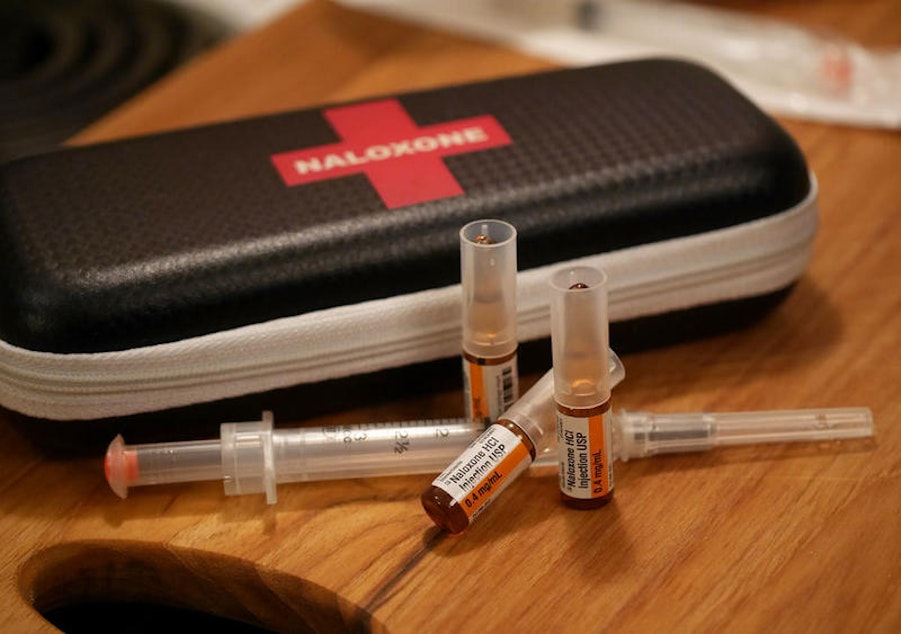King County keeps quiet on the future of safe injection sites

Supervised drug consumption sites in Seattle face an uncertain future.
U.S. Deputy Attorney General Rod Rosenstein wrote in an op-ed on Monday that the Department of Justice would take swift action against any such site that opens.
Rosenstein repeated that warning in an interview with WHYY in Philadelphia, another city with plans for a safe injection site.
The response is mum from officials in Seattle and King County, who have been planning two safe injection sites since the task force recommended them in a 2016 report.
They have planned to locate a site in Seattle and one elsewhere in the county, though officials have yet to pick the locations.
KUOW made multiple requests with King County and Seattle officials as to whether they will continue with the two planned safe injection sites.
The response? Mostly crickets.
At this time, King County Executive Dow Constantine and Prosecuting Attorney Dan Satterberg have declined to give comment. Seattle Mayor Jenny Durkan’s office did not comment either, but referred KUOW to the city attorney, Pete Holmes.
“It’s disappointing that Deputy Attorney General Rosenstein continues to perpetuate the old assumption that criminalization is the solution to a growing public health epidemic," Holmes said.
To unwind the War on Drugs, Holmes continued, “we apparently can't look to Jeff Sessions and the Trump Administration for help.”
A task force on opioid addition has recommended that King County open safe injection sites. University of Washington researcher Caleb Banta-Green, who studies overdose prevention, was part of that group.
"There is good research evidence that safe injection facilities modestly improve health outcomes," Banta-Green said. "Probably more importantly, they fill a needed gap for the roughly 20 percent of people who are not ready to stop their use [of opioid drugs]."
Task force co-chair Dr. Jeff Duchin has said the facilities could be an extension of existing needle exchange programs.
Duchin also pointed out that early adoption of syringe exchange programs — another controversial model aimed at prevention -- actually prevented the HIV epidemic from taking hold among drug users in King County, a different outcome from other areas of the country that didn't embrace the strategy.




